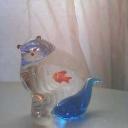Yahoo Answers is shutting down on May 4th, 2021 (Eastern Time) and beginning April 20th, 2021 (Eastern Time) the Yahoo Answers website will be in read-only mode. There will be no changes to other Yahoo properties or services, or your Yahoo account. You can find more information about the Yahoo Answers shutdown and how to download your data on this help page.
Trending News
Japanese flag translation?
A co-worker of mine brought this in. I am not sure where he got it. Can someone help me translate some of it? Thanks!
I am more interested in a name. I would like to know if this was a personal flag.
Here are some close up photos of different sections.
http://www.powersportoutlet.com/fredflag/P1020268....
http://www.powersportoutlet.com/fredflag/P1020269....
http://www.powersportoutlet.com/fredflag/P1020270....
http://www.powersportoutlet.com/fredflag/P1020271....
http://www.powersportoutlet.com/fredflag/P1020272....
http://www.powersportoutlet.com/fredflag/P1020273....
http://www.powersportoutlet.com/fredflag/P1020274....
Thanks Belie. On the bottom corner it looks like there is blood and in the center it looks like a bullet hole. Do you think it was from the war and then given as a gift? Thanks again for your answer.
In Response to Joriental.
This was brought back by the man's father after the war. Here is a good website about these Good Luck flags.
9 Answers
- 1 decade agoFavorite Answer
I am a native mostly 40y/o japanese who do not know the war.
I do not have knowledge to identify if the flag is the real one or not.
However let me try to translate and explain it, though it might be poor or incorrect.
In http://www.powersportoutlet.com/fredflag/P1020276....
You see "尉 中 原 荻".
Old Japanese was written from right to left, or top to bottom.
For this case, read from right to left.
荻原 is his last name, Ogihara.
中尉 is his title, chuui, in the military organization.
In the modern Japanese, it should be written as "荻原中尉"
(Current Japanese is written from left to right or top to bottom.)
You see "忍 枝 今" (you may need to rotate the characters) under the "尉" of "尉 中 原 荻",
which is a name, and could be read as
"Ima-eda"(今枝) as last name and
"shinobu"(忍) as the first name.
In the same way, you may find 一庄枝今 under "中 原".
今枝 is the last name, Ima-eda(probably), and
庄一 is the first name , Shouichi.
In http://www.powersportoutlet.com/fredflag/P1020275....
You see big "祈" at the right, which means "pray".
I can not identify what are the next left characters.
In http://www.powersportoutlet.com/fredflag/P1020273....
You see
宿
敵
必
滅
(top to bottom), which may be translated as
"Destroy the enemy absolutely.".
then,
中
村
伍
長
,which is a last name, Nakamura(中村), and his title, gochou(伍長).
You see 男正澤黒 over the 宿敵必滅.
黒澤 is the last name, Kurosawa, and
正男 is the first name, Masao.
You see
沈
勇
果
断
under 黒 of 男正澤黒 and on the right of 宿敵必滅。
沈勇果断 could be translated as
"Be bold and do it boldly in old Japanese way as a Japanese man.".
I don't think this word was used to women.
I can not translate the details, though I checked my Japanese dictionaries, I do not have enough words to express it in English.
According to my native Japanese dictionary issued over 20 years ago,
沈勇 is "silent/calm and bold"
果断 is "Do something boldly with no hesitation"
In http://www.powersportoutlet.com/fredflag/P1020271....
You see
今
枝
儀
一
at the center.
今枝 is the last name, Ima-eda.
儀一 is the first name. giichi (probably)
You see
誠
忠
at the right, which means "wholehearted loyalty", probably to the Emperor.
You see
岩
田
増
雄
on left side of the image.
岩田 is the last name, Iwata, and
増雄 is the first name, Masuo.
I can identify "吾が身" and "勝らん" on the right of 岩田増雄。
吾
が
身
means "I or myself"
勝
ら
ん
relates to "winning". but I can not translate it, since I can not read the whole sentence, therefore can not identify the context of it.
In http://www.powersportoutlet.com/fredflag/P1020269....
I see
し
っ
か
り
on the left near the red part, which are Japanese Kana characters.
It can be translated as
"take courage" or "have strong mind"
I feel dificult to translate this Japanese to English, because I can not find appropriate words in English.
I hope you all will not mis-understand.
My translation may not be correct.
I see
七
生
報
國
According to the following site
http://www.cc.matsuyama-u.ac.jp/~tamura/hitisyouho...
it can be translated as "Devote my life to battle and destroy the enemies. Even if I die, still I will come back to life(re-born) 7 times and continue to battle and destroy them for our country, Japan." This 4 character word seems to be used as a kind of symbol in the war.
The original meaning of 七生報國 some centuries ago seems to be for "traitors or rebels" instead of enemies.
On the flag, 國 is used, which is the old Japanese Kanji character. Current character is 国(country).
You see
菅
軍
曹
under 七生報国.
菅 is the last name, Kan and
軍曹 is his title, gunsou.
On its left, you see
熱
誠
努
力
I do not know the meaning of it, however, there are some hits by google search and looks like used in Japan by traditional schools. My dictionaries indicate 熱誠 is literary style. It means an old word. It's a bit too difficult for me to translate it.
努力 is still a popular Japanese word. It means "effort" or "work hard". Maybe "wholehearted effort" is 熱誠努力。
Most other characters on this image show names of persons who encouraged a person. ( kb already answered about this.)
In http://www.powersportoutlet.com/fredflag/P1020274....
I can find "元氣で", which means "Hope your good health(no injury/wound/illness)"
元
氣
で
here,
氣 is an old Japanese Kanji character, which is now written as 気。
(You may need to change the display size of characters of Internet Explore or a browser to identify the difference between 氣 and 気)
You find some little difference between the characters on the flag and in my answers. As I already explained, this is because the new Japanese government? after the war seemed to re-define some Kanji characters for some reason such as for easier to write. for more see http://en.wikipedia.org/wiki/Shinjitai
2nd reason may be caused by the characteristics of each person, the way how it is written, which may be used for signature to identify a person on your credit card.
I hope someone would correct my answer, if any.
- Anonymous1 decade ago
Wow, this is an old flag from a war time!!!
I'm Japanese and I can tell you that this flag was a gift. In Japan, we have a custom that when someone that we really like leaves us, we get together and write our name and message on something and give that to the person as a gift. And in this case, they used a Japanese flag to write their name and message and they gave the flag to someone as a gift.
I assume that the people who wrote on the flag were Japanese soldiers because I see these Japanese words such as " Taisa (colonel)," " Chu-i (officer???)," " Gunsou ( sergent) And I also see these messages : " genki de (take care )." "shikkari (don't lose heart), " "seichu ( loyalty)" and so on. So I'm pretty sure that the person who got the flag was a Japanese soldier who was leaving the people who wrote their name and message on the flag.
Well, back then they used these old Chinese characters that Japanese people don't really use today. So it's kinda hard for me to understand some messages. But still I kinda understand what they wrote but not everything, though. Well, they just basically worte a very short message and they wrote their name right next to it or under it.
And I'm just going to write the people's name that I can understand on the flag:
Chu-i Ogihara
Hashimoto
Masao Kurosawa
Yoshitaka Horita
Katsumi Shibata
Yoshinobu Tomita
Kouichi Iriyama
Gozaemon Nomura
Chu-i Matsumoto
Suzuki
Masuo Iwata
Mitsuo Nishida
Toshiaki ( or Toshimitsu?) Tsutsui
Colonel Hotta
Sergent Imaeda
I might've read these people's name wrong. Japanese people's name isn't like English name that there might be more than one way to read it so if I read it wrong, sorry.
- ?Lv 45 years ago
The right flag is the white flag with the pink oval within the middle. Of direction recollect to incorporate the forty eight megastar US flag as good, when you consider that you're doing a presentation on Japanese-Americans. The flag with the traces popping out was once the army used flag. Since it's Japanese-Americans you're doing, the constant white flag with pink circle could be probably the most correct alternative.
- How do you think about the answers? You can sign in to vote the answer.
- BelieLv 71 decade ago
I'm going to go out on a limb here and say that the writing (though on the Japanese flag) is Chinese because there's no kana and my computer refuses to believe some of those kanji exist.
The little stuff being names and the larger text wishing a person well.
It was probably a going away present a Chinese group/class gave to a Japanese person.
- 1 decade ago
I know a little Japanese, and I think the writing on the right side says something about being in heaven.
- flemmingbee2Lv 61 decade ago
kb is right, and the person being sent off (to a combat-zone) and therefore the probable owner of this flag was 今枝義一(IMAEDA Giichi is a typical reading but there are other possibilities).
Source(s): native Japanese speaker. - JorientalLv 61 decade ago
But don't you guys think this flag is not that old?
Isn't this a flag written by the right-wing(右翼)or by ex-soldiors (grandpa generation) at any ceremony or party? for died friends?
They hold alumni association often.
- 1 decade ago
They are the collection of autographs which the old Japanese army wrote.
It was made in order to raise morale before a big strategy.
Because this is collection of autographs, it is not one text.
-----------------------------------------------
久長運武祈(big character)
I pray that the fortune of a battle continues for a long time.
神霊在天(big character)
Divine spirit presence in heaven.
祈 今枝 栄三郎
Pray Eizaburo Imaeda
為 今枝 義一君
For Mr. Yoshikazu Imaeda
魂
Soul
武運長
the fortune of a battle continues for a long time.
保田 大佐
Captain Yasuda
今枝 金一
Kinichi Imaeda
若杉
Wakasugi
松本 中尉
First lieutenant Matsumoto
七生報国誉
Even if I am born again 7 times, I live for a country.
熱誠努力
Hot sincerity and Attempt
今枝 軍曹
Staff sergeant Imaeda
野村 小左ェ門
Kozaemon Nomura
河? 圭五郎
Keigoro Kawa?
今枝 義平
Yosihira Imaeda
しっかり
Firmly
?永 曹長
Sergeant major ?naga
至誠
It becomes truly.
石田 澄
Sumi Ishida
誠忠
Loyalty
今枝 義市
Yoshiichi Imaeda
岩田増雄
Masuo Iwata
入山 本一?
Honichi iriyama?
命栄
life prospers.
忠 西田 光雄
Loyalty Mituo Nishida
宿敵必滅
The Enemy is certainly ruined.
中村 伍長
Sergeant Nakamura
?勇果敢
?Bold brave.
元気
Spirits
萩原 少尉
Second lieutenant Hagiwara
-----------------------------------------------








